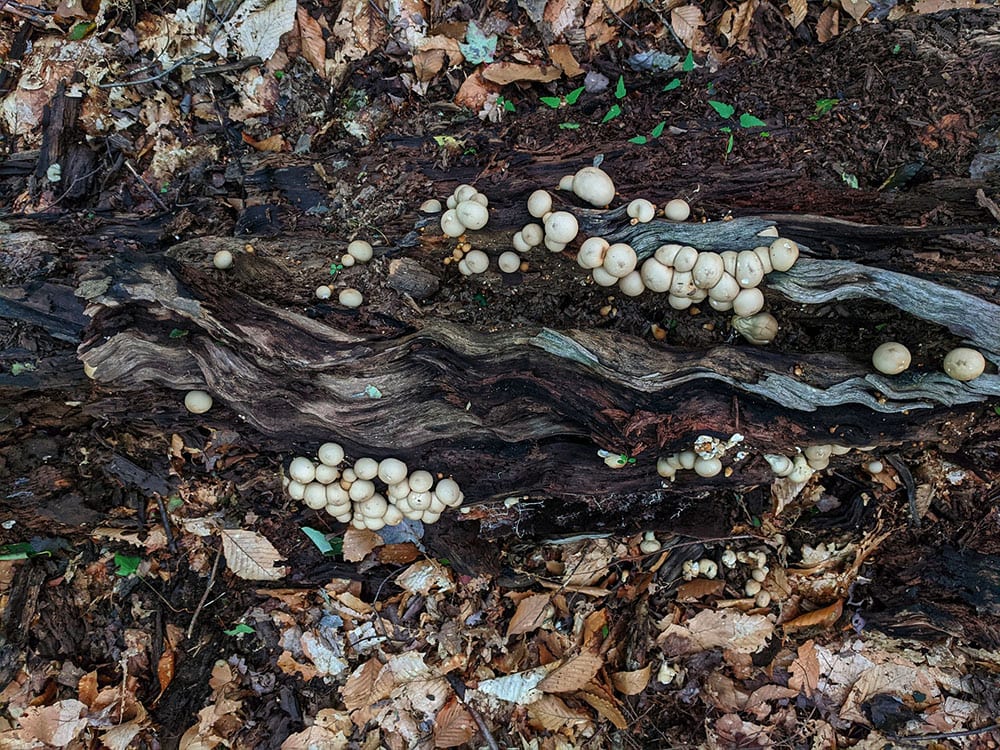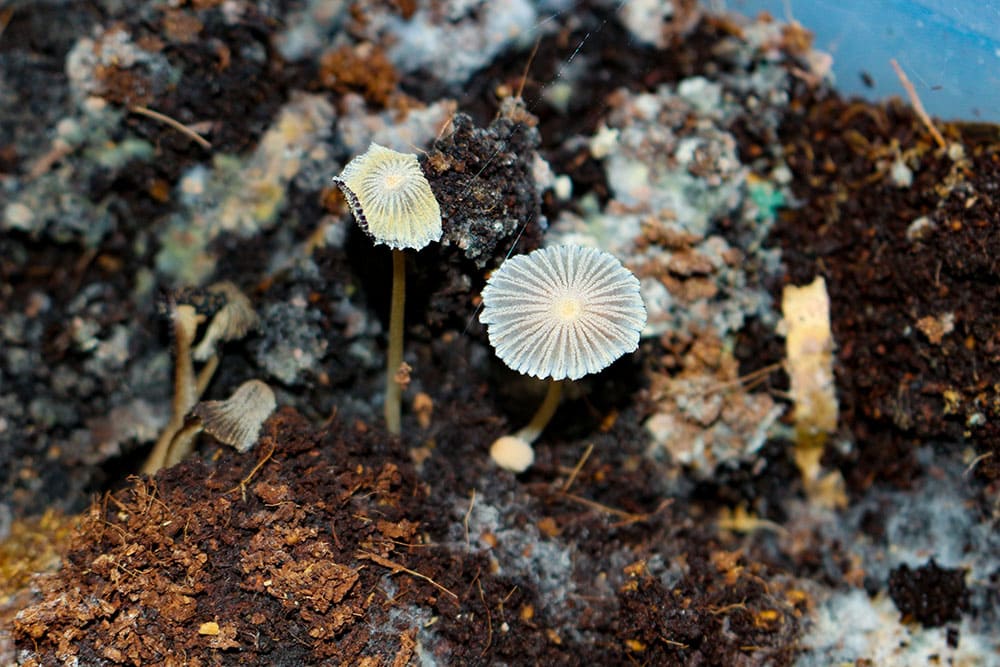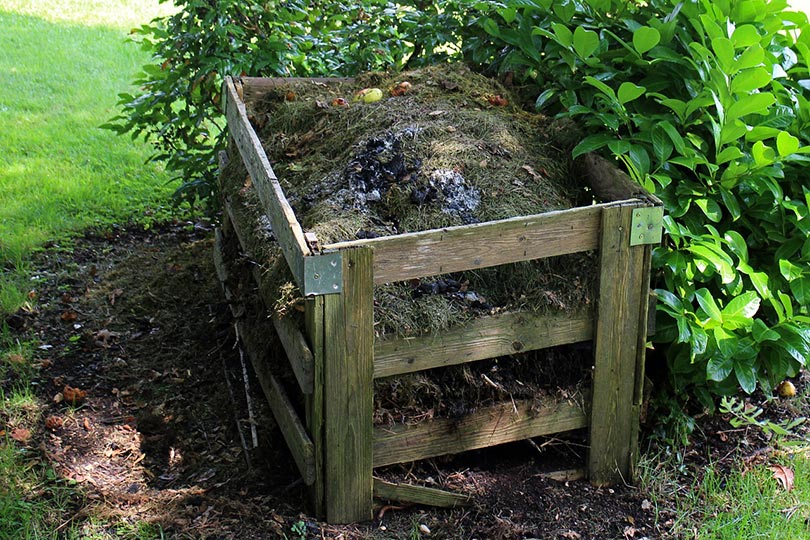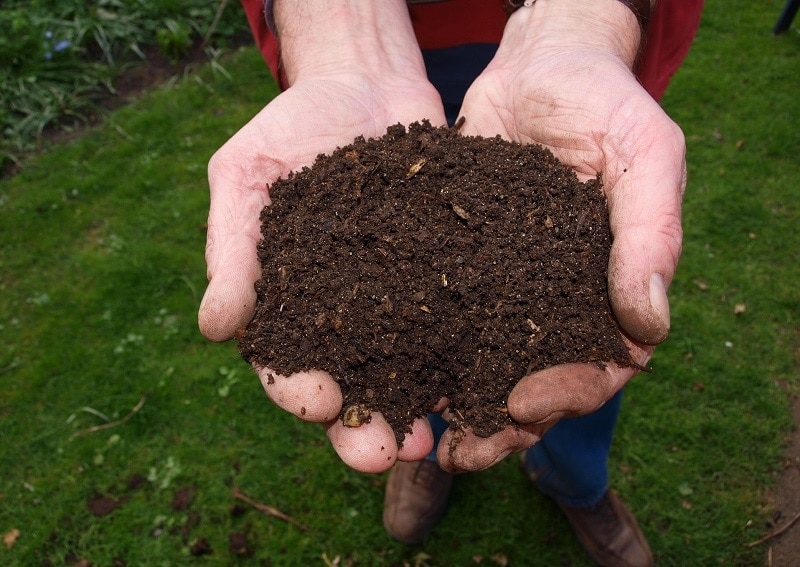Is Mushroom Compost Good For Tomatoes? Pros, Cons & FAQs
-
Visnja Radosavljevic
- Last updated:

Composting is a process in which you convert organic waste into humus-like soil, which can later serve as plant fertilizer. Many materials can serve as organic fertilizer, such as banana peels, eggshells, nutshells, cardboard, and even hair. There are many kinds of compost, depending on what you want to use it for. One of the most popular types is mushroom compost. Mushroom compost is a nutrient-rich compost that can primarily serve as a fertilizer for commercial mushroom cultivation.
Even though it is the primary substrate for growing mushrooms, you can use this compost for other plants and vegetables such as tomatoes. Continue reading to learn more about mushroom compost and whether it is safe to use on tomatoes.
What Is Mushroom Compost?
Mushroom compost is great for when your soil needs extra nutrients and moisture. While the name itself implies that this type of compost derives from mushrooms, it is actually a regular compost used to cultivate mushrooms. It is made from many different materials, such as straw, potash, peat moss, and even chicken or horse manure. This type of compost needs about a month to develop, and it has been popular for many years of mushroom cultivation.

When Can You Use Mushroom Compost?
Even though people mainly use mushroom compost for growing mushrooms, you can also use it for various vegetables and ornamental plants. Once you use this compost or fertilize mushrooms, they will gather all the nutrients they need, and the compost will still be reusable for other plants. Even though mushroom compost is excellent for growing mushrooms and other plants, it may harm young plants, germinating seeds, and other salt-sensitive plants.
How to Use Mushroom Compost
Before applying mushroom compost, it is essential to dilute it first with regular garden soil. You can begin by mixing two-part garden soil with one-part compost. Once you create this mixture, ensure that salt levels are optimal and the compost will be safe to use on most plants. You can pour your compost and spread it equally on the soil’s surface, and the nutrients will be slowly released into the soil, which will provide your soil with the necessary nutrients for a long time.

Can You Put Mushroom Compost on Tomatoes?
While you may think that mushroom compost is best used on the plants that it is intended for, it serves as a great fertilizer for tomatoes. It provides tomatoes with the necessary components for them to thrive. It helps with moisture retention and protection against diseases, and it provides it with nutrients such as calcium to grow healthy. Mushroom compost is excellent for the soil, primarily because it helps it retain moisture and therefore ensures your tomatoes do not become dry. This feature makes compost a very eco-friendly material because it will help you achieve more with less; you will use much less water but get a much more humid soil.
Benefits of Using Mushroom Compost on Tomatoes
There are many incredible benefits of using mushroom compost for your garden vegetables, especially tomatoes. It can provide them with many nutrients they need to thrive, but most importantly, they are rich in calcium. Some gardeners may argue that mushroom compost is even the best fertilizer for tomatoes because of the benefits, which include:
- High calcium concentration
- Helps the soil retain moisture
- Protects plants against diseases and pests
- Doesn’t have much of an odor
- Adds necessary nutrients
- Eco-friendly
- You can recycle it

Drawbacks of Using Mushroom Compost on Tomatoes
One of the main drawbacks of using mushroom compost is that it can seriously harm and damage plants if it is not diluted with regular garden soil. High salt levels can even cause your plants to burn, so it is crucial to take one-part mushroom compost and mix it with two-parts regular soil.
Certain vegetables can thrive with mushroom compost, while other plants and vegetables are very salt-sensitive. That’s why mushroom compost may cause permanent damage to such vegetables. If you are not careful with using mushroom compost, you can risk killing germinating seeds or harming your healthy growing plants. Significant drawbacks of mushroom compost are:
- Dangerous for seedlings and young plants
- Plants may burn
- Harmful to some vegetables
- May cause rotting of the soil and roots
Final Thoughts
After reading this article, we hope to give you a better insight into using mushroom compost for many different plants and vegetables. The great thing is that after using this compost for fertilizing mushrooms, you can safely reuse it on other plants. Mushroom compost is especially great for use on tomatoes, maybe even the best compost for this vegetable! It will provide tomatoes with all the necessary ingredients to thrive while helping the soil retain moisture and many beneficial nutrients.
Featured Image Credit: Sigmund, Unsplash
Contents

